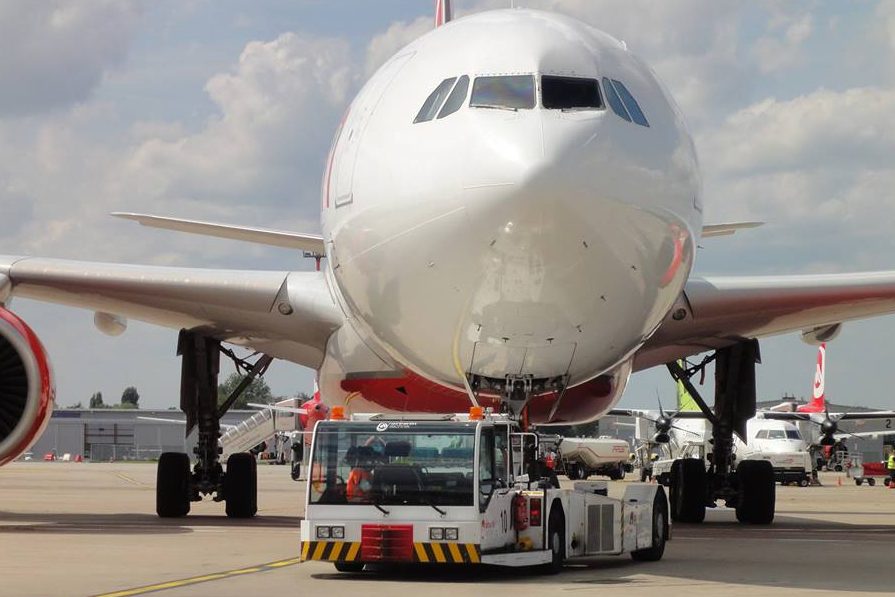Skift Take
Air Berlin's potential absorption into Lufthansa may foreshadow fewer clean connections for American Airlines travelers heading to continental Europe, while United customers may see a benefit.
It’s been in the cards for some time now, but last week, Air Berlin finally threw in the towel and filed for bankruptcy as its last financial lifeline, investor Etihad pulled further funding. The move came suddenly August 15 in contrast to earlier reports that Etihad had agreed to an additional 18 months of funding in May.
Air Berlin never became widely popular as an international airline due to a litany of issues, and its shortcomings made it largely unprofitable. And though it will be missed as an airline if operations cease (the carrier is still running through the summer on a loan from Lufthansa), the biggest gap that it may leave could be in the Oneworld alliance, the network of partner carriers to which Air Berlin subscribes.
Among other partners, the Oneworld alliance includes American Airlines, British Airways, Cathay Pacific, Iberia, and Qantas, giving Air Berlin and its customers reach across much of the world. Just as importantly though, Air Berlin gave its partners deep access into central Europe. That reach was particularly important to carriers like American Airlines, which could operate international flights into Germany and then quickly offer connections on Air Berlin throughout the region.
By contrast, as partners, British Airways and Iberia approach central Europe from corners of the continent that make it harder for a North American traveler to cleanly connect to destinations like Budapest or Istanbul.
Air Berlin was also the closest thing to a low-cost carrier that Oneworld had. The airline frequently offered low-cost flights from the United States into Europe, giving American customers a new channel to get into Europe while still earning miles and elite status.
As Air Berlin begins its sunset, many speculate that Cologne-based Lufthansa may step in and acquire the airline’s assets and routes — after all, it’s already leasing a handful of the smaller carrier’s aircraft. If that transition happens, though, Air Berlin’s network will effectively be absorbed into Lufthansa’s, expanding the reach of the rival Star Alliance network.
That network, in stark comparison to Oneworld, is currently well-positioned throughout central Europe. Austrian, Brussels, Croatia, LOT Polish, Lufthansa and Swiss all contribute to the Star Alliance, while several other carriers at the edge of the region also operate flights throughout continental Europe.
Skyteam, the third airline alliance and the second largest in terms of scheduled traffic, also can’t compete with Star’s reach, with only Air France/KLM, Alitalia and Czech in the region.
Losing Air Berlin from Oneworld to Star Alliance may thus end up increasing the stranglehold that Lufthansa and its partners have on the region. And by extension, U.S. travelers who fly on United, the U.S. Star Alliance member, will get better reach into continental Europe.
Alliance concerns, of course, are secondary to the survival of Air Berlin’s assets and employees. But if the Lufthansa takeover actually happens, those flying within the Star Alliance may have a much wider network to look forward to.
Skift Stories and More Expert Insight
Air Berlin’s Slow Collapse Into Bankruptcy, Explained: Air Berlin was kept afloat thanks to shareholder Etihad Airways, whose expansion attempts had seen it invest in a series of struggling European carriers. With a new chief executive in Abu Dhabi, Etihad’s patience has finally run out, and, having had its funding pulled, Air Berlin had no choice but to file for bankruptcy.
Airline Loyalty Programs Are Losing Their Luster — Even for Frequent Flyers: Airline loyalty programs are losing much of their allure even for frequent flyers, and the rules for navigating the system have changed.
Airlines Pack More Seats Onto Each Plane and Manufacturers Try to Make Them Comfortable: Airlines and seat manufacturers do try to make seats comfortable enough. But let’s be clear: Travelers want tight seating. By their actions, most passengers have shown they want cheap prices over anything else. Airlines can only offer bargain fares if they pack planes with seats.
Hotel CEOs Discuss Recent Cancellation Policy Changes and Hint at More to Come: Marriott and then Hilton made a lot of news in the past two months when they both announced changes to their cancellation policies, shortening the amount of time to cancel a reservation to 48 hours prior to check-in, instead of the industry standard of just 24 hours.
The Points Guy: Hidden Gems of the Avianca Lifemiles Program: Earning elite status on a partner alliance carrier can often carry benefits across the entire network. South America’s Avianca Lifemiles program has a few key benefits within the Star Alliance.
One Mile at a Time: Sun Country Will Transform Into An Ultra Low Cost Carrier: Last month Sun Country appointed Jude Bricker as its new CEO, who is a former Allegiant Airlines executive. While there’s not yet a timeline for these changes, he’s determined to cut costs and increase revenue, while still “protecting Sun Country’s reputation of quality customer service.”
The Daily Newsletter
Our daily coverage of the global travel industry. Written by editors and analysts from across Skift’s brands.
Have a confidential tip for Skift? Get in touch
Tags: airlines, loyalty, oneworld
Photo credit: Pictured is an Air Berlin aircraft on May 21, 2013. The airline has filed for bankruptcy. Air Berlin
